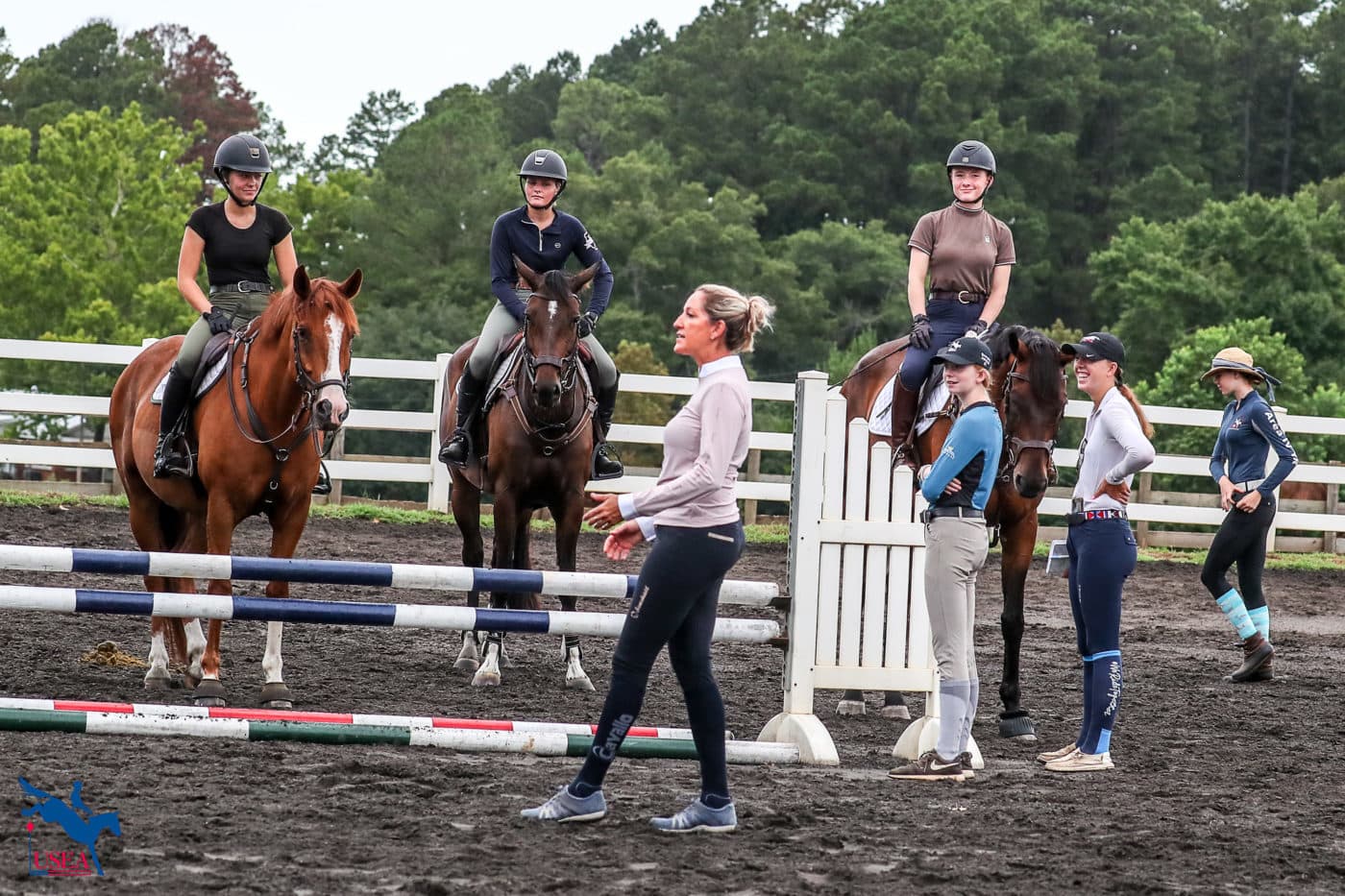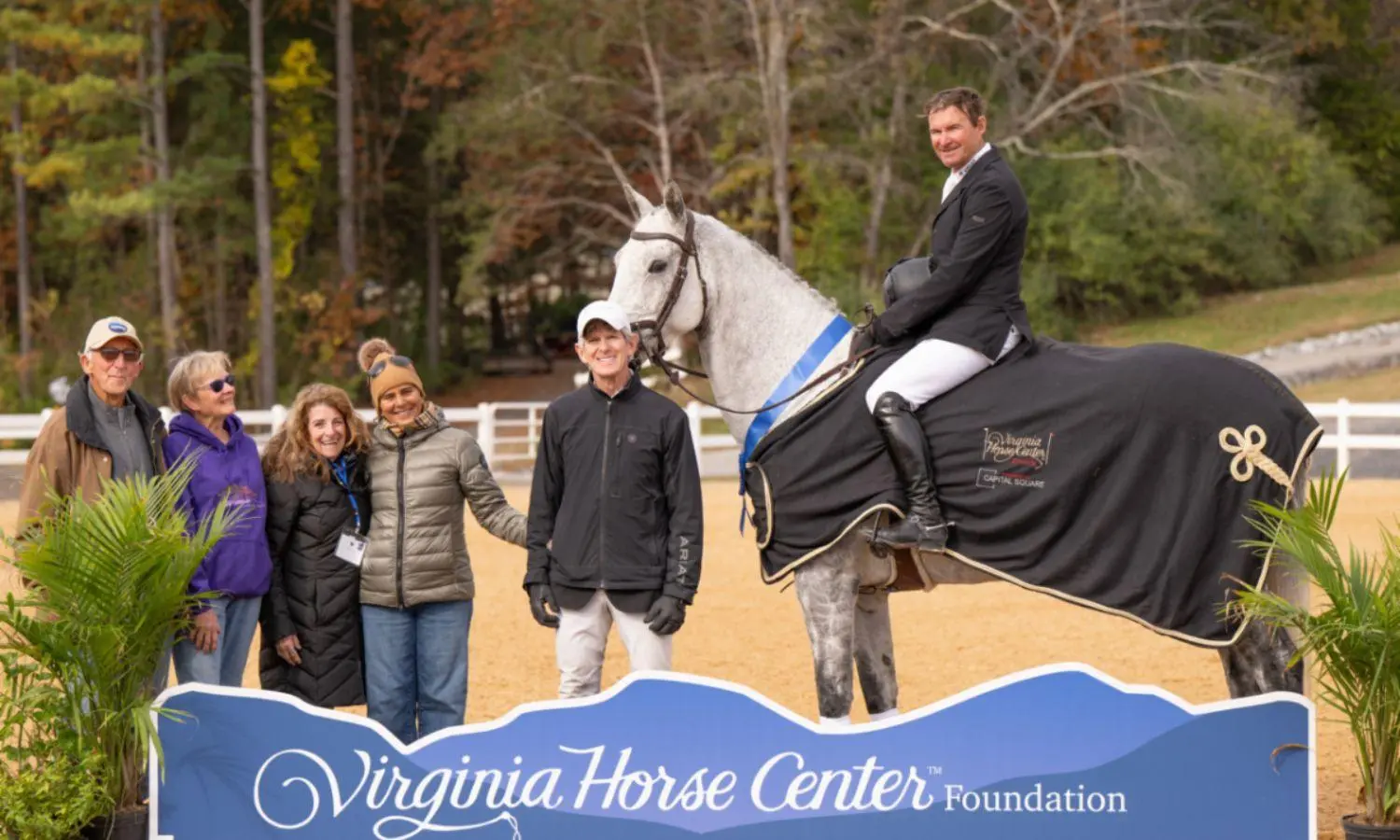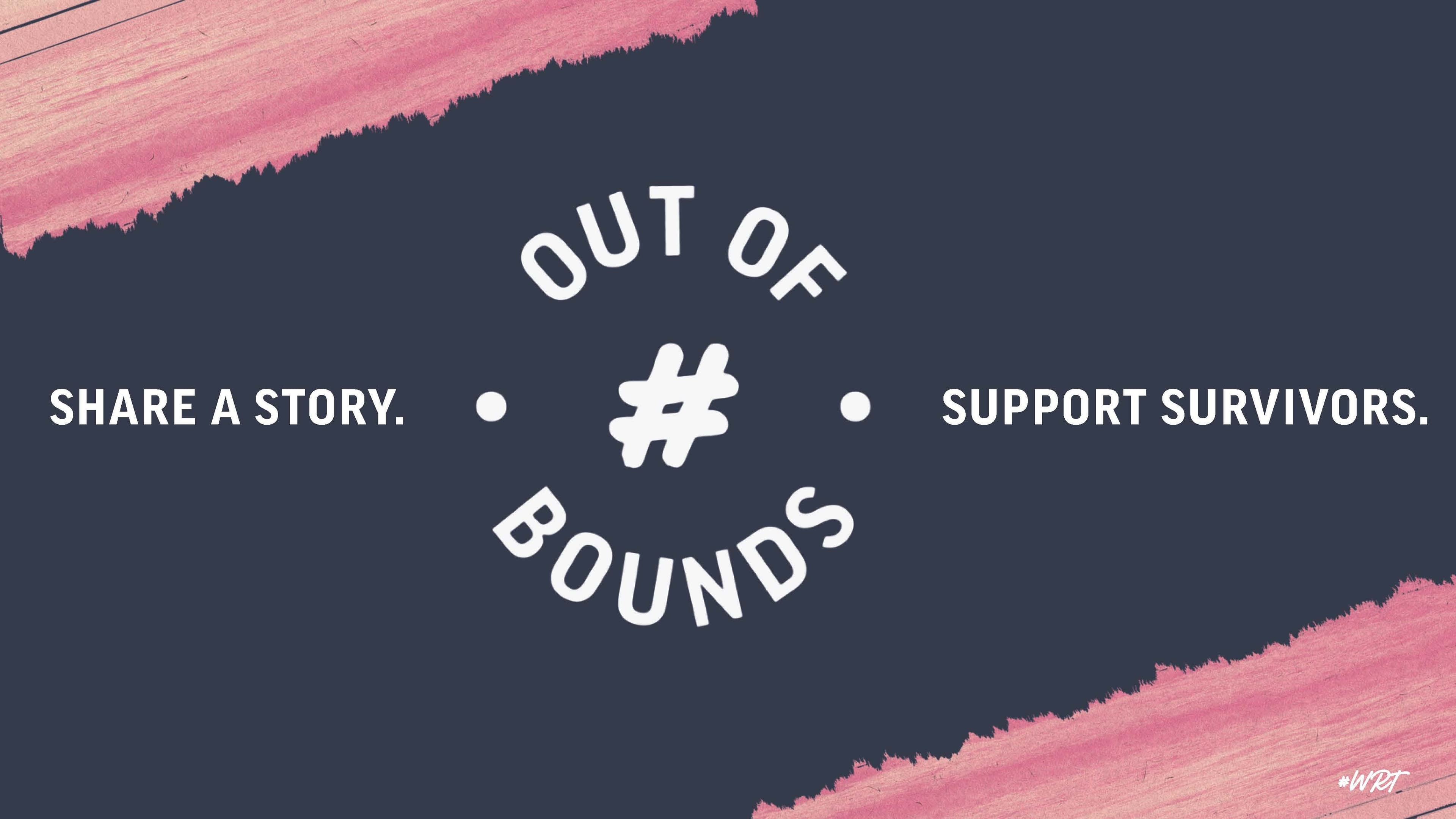The EA21 Recap: Central Edition

This summer, five USEA Emerging Athlete 21 (EA21) Clinics took place across the country giving young riders the opportunity to hone in on their horsemanship skills, improve their consistency in the saddle and show ring, and create a pipeline for potential team riders by identifying and developing young talent. We caught up with many of the riders from the Central session to hear their takes on the USEA’s newest program.
On the importance of applying for this program:
Hadley Bruce: “It was important to me to apply for a number of reasons. One it would be an incredible opportunity to get to ride with another trainer to see their opinion on my horse and my riding skills. The second would be that by applying and getting in I was able to meet people I probably never would have met without the program. The third is I wanted to prove to myself I could do it and I could get in after struggling with my confidence in my riding after coming home from North Carolina.”
Maia Ramberg: “It was important for me to apply to participate in the EA21 program because as an Area IV eventer we don’t get many educational opportunities like this. I felt like this would be an amazing opportunity to further my education.”
On what they learned from the EA21 clinic:
Camryn Chung: “The EA21 clinic thoroughly enhanced my understanding of the German Training Scale and the application of these basics to all three phases of eventing to promote the success of both horse and rider. From training young horses to riding a 5* cross country course, a mastery of the basics is the foundation of achievement and promotes confidence in the rider on any horse.”
Daly Duarte: “The EA21 clinic reminded and reinforced the most important lesson, for me, in eventing: development, determination, and dedication really drive the success of the sport. Development of every tool I can master, determination to visualize my long-term goals, and dedication to each horse as my partner. The clinic supported my development and showed the dedication of coaches to mentor young riders like me in our shared passion for eventing.”
Jhett Jenkins: “I think the biggest thing I learned through my experience at EA21 was to be adaptable as a rider and a horsewoman. The opportunity to attend this regional clinic was a dream come true, but all of my plans and preparation leading up to the clinic fell apart and I ended up catch riding a horse for the week. Though it was not how I imagined my experience, I had a wonderful time and received great education from our instructor Bec Braitling who was able to adjust her lessons for me as I was just learning the horse rather than furthering our partnership. Being adaptable as a rider widens your skill set but being adaptable as a horsewoman is almost more important because as we know, things never quite go to plan with horses, and sometimes you have to just keep looking forward.”
What advice they would share with fellow riders considering applying to future EA21 clinics:
Maya Clarkson: “If you’re considering applying for the EA21 program, you absolutely must! Don’t be afraid of the application process! Don’t be afraid if you’re not riding the nicest horse, and don’t be afraid if you haven’t competed at a high level. The program is an incredible opportunity for all riders to be set on an equal playing field where they can learn, grow, and shine, regardless of their show records.”
Scarlett Peinado: “My advice would be to just never give up and never quit working towards your goals. You can help around the barn, ride extra horses, and continue learning and improving. If you are dedicated to eventing, then give it your all and go for it!”
On how they can apply what they learned in the EA21 clinic to their daily life:
Michaela Frye: “I plan to use the constructive criticism that I was given to improve my position, which therefore improves my riding, and I feel as though I now have a deeper understanding of how much my seat aids affect the horses that I ride. The shoulder-fore, haunches-in, leg-yielding, and pole exercises have been great strengthening exercises. I now have an abundant source of ideas and exercises that I can use to develop my new eventing prospect, Bermuda, and lay down a solid foundation with her before moving her up the levels.”
Katherine Hindman: “After getting a taste of who and what I may encounter in my future I feel more prepared and more confident that I can make a future for myself in this sport. As a high school senior, I have been facing the question of what my future holds and how I can achieve my goals both academically and in eventing. I am glad that after attending the clinic, I understand better what this opportunity will provide to young riders such as myself and how we can learn from other young riders who are facing and overcoming similar struggles. I am honored to be able to ride alongside these riders as they are all quite talented individuals, many of whom are liable to become the next generation of top riders and eventers whom I hope to one day join.”
Ava Staton: “The EA21 clinic helped me to focus on the parts of my riding that are challenging me. I have taken what I learned during the clinic and applied it to my rides at home which has helped me to improve the parts of my riding that I am struggling with. This has in turn helped me in competition which helps me get closer to my goals.”
On how participating in this clinic aligns with their future goals:
Camdyn Rahe: “Participating in the EA21 aligns with my goals by allowing me more coaching resources. It also aligns with my future goals by expanding my knowledge of the sport and how to make a career in the sport. It also taught me that it’s not all about the riding and that I should have goals that are more about the sport and the behind-the-scenes than the riding portion of the sport.”
Access all the coverage from the 2022 EA21 Regional Clinics here.














